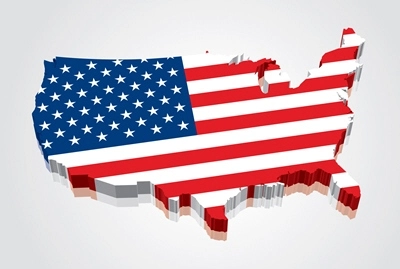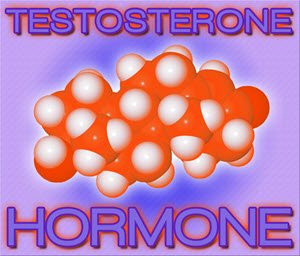Introduction
Hair loss, a common yet often distressing condition, affects millions of American men. While it is a natural part of aging for many, the social stigma associated with hair loss can significantly impact self-esteem and social interactions. In a society that places a high value on physical appearance, understanding how American males navigate these challenges is crucial. This article explores the psychological and social dimensions of hair loss among American men, highlighting strategies to maintain self-esteem and foster positive social interactions.
The Psychological Impact of Hair Loss
Hair loss can lead to a profound sense of loss and diminished self-worth among American males. The psychological toll is often underestimated, with many men experiencing anxiety, depression, and a decreased sense of masculinity. Studies have shown that men who experience hair loss at a younger age are particularly vulnerable to these feelings, as societal expectations of youth and vitality are closely tied to a full head of hair. The internalization of these societal norms can lead to a negative self-image, which in turn affects overall mental health.
Social Stigma and Its Effects
The social stigma surrounding hair loss can exacerbate its psychological impact. In social settings, men with thinning hair may feel self-conscious and perceive that they are judged or pitied by others. This perception can lead to social withdrawal and avoidance of situations where their hair loss might be noticed. Additionally, the media's portrayal of baldness as a sign of aging or diminished attractiveness can reinforce these negative stereotypes, making it harder for men to accept their condition and engage confidently in social interactions.
Strategies for Maintaining Self-Esteem
Despite the challenges, many American males have developed effective strategies to maintain their self-esteem in the face of hair loss. One approach is to reframe the narrative around baldness, viewing it as a natural and acceptable part of life rather than a flaw. Embracing a bald look, whether through shaving the head or using hair loss treatments, can empower men to take control of their appearance and boost their confidence. Additionally, seeking support from friends, family, or support groups can provide a sense of community and validation, helping men to feel less isolated in their experiences.
Navigating Social Interactions
Navigating social interactions with confidence is another critical aspect of managing hair loss. Men can benefit from focusing on their strengths and positive attributes, rather than fixating on their hair. Engaging in activities that boost self-confidence, such as exercise or pursuing hobbies, can also help men feel more comfortable in social settings. Moreover, educating others about hair loss and challenging societal stereotypes can foster a more inclusive and understanding environment, reducing the stigma and making social interactions more positive.
The Role of Medical Interventions
For some American males, medical interventions such as minoxidil, finasteride, or hair transplant surgery may be viable options to address hair loss. These treatments can help restore a sense of normalcy and improve self-esteem. However, it is essential for men to consult with healthcare professionals to understand the potential benefits and risks associated with these interventions. A personalized approach, considering both the physical and psychological aspects of hair loss, can lead to more effective outcomes.
Conclusion
Hair loss among American males is more than a physical condition; it is a social and psychological challenge that requires a multifaceted approach. By understanding the impact of social stigma and developing strategies to maintain self-esteem and navigate social interactions, men can better cope with hair loss. Embracing a positive mindset, seeking support, and considering medical interventions when appropriate can empower American males to live confidently and fully, regardless of their hair status. In a society obsessed with appearance, fostering a culture of acceptance and understanding is crucial for the well-being of all individuals affected by hair loss.
Contact Us Today For A Free Consultation

- Decoding Follicle Fallout: An Exploration of Hair Loss as a Significant Medical Concern [Last Updated On: March 2nd, 2025] [Originally Added On: March 2nd, 2025]
- Exploring the Link Between Thyroid Disorders and Hair Loss: Mechanisms, Diagnosis, and Treatment Options [Last Updated On: March 3rd, 2025] [Originally Added On: March 3rd, 2025]
- Exploring Surgical Solutions for Male Hair Loss: Techniques and Benefits [Last Updated On: March 4th, 2025] [Originally Added On: March 4th, 2025]
- Comprehensive Guide to Male Hair Loss: Causes, Treatments, and Psychological Effects [Last Updated On: March 5th, 2025] [Originally Added On: March 5th, 2025]
- Understanding Pediatric Hair Loss: Causes, Impact, and Management Strategies [Last Updated On: March 6th, 2025] [Originally Added On: March 6th, 2025]
- Exploring OTC Hair Loss Treatments for Men: Minoxidil, Herbal Supplements, and Efficacy Insights [Last Updated On: March 7th, 2025] [Originally Added On: March 7th, 2025]
- Holistic Approaches for Managing Hair Loss in American Men: Natural Solutions Explored [Last Updated On: March 8th, 2025] [Originally Added On: March 8th, 2025]
- Unveiling the Silent Culprit: The Connection Between Scalp Infections and Male Hair Loss in America [Last Updated On: March 9th, 2025] [Originally Added On: March 9th, 2025]
- Genetics and Hormones: Unraveling Male Pattern Baldness for Effective Treatment and Prevention [Last Updated On: March 9th, 2025] [Originally Added On: March 9th, 2025]
- Exploring Medical Wigs: A Vital Solution for Hair Loss in American Males [Last Updated On: March 10th, 2025] [Originally Added On: March 10th, 2025]
- Unraveling the Link Between Stress and Hair Loss in American Males: A Comprehensive Medical Insight [Last Updated On: March 12th, 2025] [Originally Added On: March 12th, 2025]
- Hormonal Influences on Male Hair Loss: Genetics, Androgens, and Treatment Strategies [Last Updated On: March 13th, 2025] [Originally Added On: March 13th, 2025]
- Unveiling the Truth: A Comprehensive Guide to Hair Loss in American Males [Last Updated On: March 15th, 2025] [Originally Added On: March 15th, 2025]
- Chemotherapy-Induced Hair Loss in American Males: Understanding, Coping, and Recovery Strategies [Last Updated On: March 16th, 2025] [Originally Added On: March 16th, 2025]
- Allergies and Hair Loss in American Males: Understanding the Indirect Connection [Last Updated On: March 17th, 2025] [Originally Added On: March 17th, 2025]
- Understanding Hair Loss in American Men: Causes, Treatments, and Future Hope [Last Updated On: March 17th, 2025] [Originally Added On: March 17th, 2025]
- Hair Loss in American Men: Psychological Impacts and Coping Strategies [Last Updated On: March 18th, 2025] [Originally Added On: March 18th, 2025]
- Monogenic Hair Loss in American Males: Genetics, Diagnosis, and Future Therapies [Last Updated On: March 18th, 2025] [Originally Added On: March 18th, 2025]
- Topical Treatments for Hair Loss: Minoxidil, Finasteride, and Emerging Therapies [Last Updated On: March 19th, 2025] [Originally Added On: March 19th, 2025]
- Alopecia Universalis: Causes, Symptoms, and Treatment Options for American Males [Last Updated On: March 19th, 2025] [Originally Added On: March 19th, 2025]
- 14 FDA-Approved Medications and Therapies for Treating Hair Loss in American Males [Last Updated On: March 20th, 2025] [Originally Added On: March 20th, 2025]
- Understanding Hair Loss: Genetics, Hormones, Age, and Management Strategies for Men [Last Updated On: March 20th, 2025] [Originally Added On: March 20th, 2025]
- Diabetes and Hair Loss in American Males: Causes, Types, and Management Strategies [Last Updated On: March 20th, 2025] [Originally Added On: March 20th, 2025]
- Understanding and Treating Hair Loss in American Men: Causes and Solutions [Last Updated On: March 21st, 2025] [Originally Added On: March 21st, 2025]
- Male Hair Loss: Understanding Causes, Impacts, and Management Strategies [Last Updated On: March 21st, 2025] [Originally Added On: March 21st, 2025]
- Telogen Effluvium in American Males: Causes, Symptoms, and Management Strategies [Last Updated On: March 21st, 2025] [Originally Added On: March 21st, 2025]
- Drug-Induced Hair Loss in American Males: Causes, Medications, and Management Strategies [Last Updated On: March 21st, 2025] [Originally Added On: March 21st, 2025]
- Antidepressants and Hair Loss in American Males: Mechanisms, Management, and Support [Last Updated On: March 22nd, 2025] [Originally Added On: March 22nd, 2025]
- Innovative Hair Loss Solutions for American Men: Technology, Biology, and Lifestyle [Last Updated On: March 22nd, 2025] [Originally Added On: March 22nd, 2025]
- Hair Loss in American Males Linked to Increased Heart Disease Risk: Insights and Management [Last Updated On: March 22nd, 2025] [Originally Added On: March 22nd, 2025]
- Hair Loss in American Males: Causes, Surgical Options, and Future Treatments [Last Updated On: March 23rd, 2025] [Originally Added On: March 23rd, 2025]
- Hair Loss in Young Males: Causes, Impacts, and Treatment Options [Last Updated On: March 23rd, 2025] [Originally Added On: March 23rd, 2025]
- Hair Cloning: A Revolutionary Approach to Permanent Hair Loss Solutions [Last Updated On: March 23rd, 2025] [Originally Added On: March 23rd, 2025]
- LLLT: A Non-Invasive Solution for Male Pattern Baldness in American Men [Last Updated On: March 23rd, 2025] [Originally Added On: March 23rd, 2025]
- Hair Loss in American Males Linked to PCOS: Hormonal Imbalances Explored [Last Updated On: March 24th, 2025] [Originally Added On: March 24th, 2025]
- Autoimmune Disorders and Hair Loss in American Males: Causes, Impacts, and Treatments [Last Updated On: March 24th, 2025] [Originally Added On: March 24th, 2025]
- Steroids and Hair Loss: Understanding Risks and Mitigation Strategies for American Men [Last Updated On: March 24th, 2025] [Originally Added On: March 24th, 2025]
- Revolutionizing Hair Loss Treatment: Stem Cells, Gene Therapy, and AI Innovations [Last Updated On: March 24th, 2025] [Originally Added On: March 24th, 2025]
- Medical Hair Loss in Men: Causes, Effects, and Management Strategies [Last Updated On: March 24th, 2025] [Originally Added On: March 24th, 2025]
- Post-COVID Hair Loss in American Males: Causes, Impacts, and Management Strategies [Last Updated On: March 24th, 2025] [Originally Added On: March 24th, 2025]
- Hair Follicle Miniaturization: Causes, Signs, and Treatments for American Males [Last Updated On: March 25th, 2025] [Originally Added On: March 25th, 2025]
- AI Revolutionizes Male Pattern Baldness Treatment and Diagnosis [Last Updated On: March 25th, 2025] [Originally Added On: March 25th, 2025]
- Hair Extensions and Permanent Hair Loss: Risks and Safe Practices for American Males [Last Updated On: March 25th, 2025] [Originally Added On: March 25th, 2025]
- Understanding and Addressing Receding Hairlines in American Men: Causes and Solutions [Last Updated On: March 25th, 2025] [Originally Added On: March 25th, 2025]
- Male Pattern Baldness: Causes, Treatments, and Future Hope [Last Updated On: March 25th, 2025] [Originally Added On: March 25th, 2025]
- Hair Loss Reversed: Success Stories and Innovative Treatments for American Men [Last Updated On: March 25th, 2025] [Originally Added On: March 25th, 2025]
- Vitamin Deficiencies and Hair Loss in American Males: Causes, Prevention, and Treatment [Last Updated On: March 25th, 2025] [Originally Added On: March 25th, 2025]
- Understanding Hair Loss in Men: Causes, Diagnosis, and Advanced Technologies [Last Updated On: March 26th, 2025] [Originally Added On: March 26th, 2025]
- Shock Loss After Hair Transplants: Causes, Timeline, and Management for American Males [Last Updated On: March 26th, 2025] [Originally Added On: March 26th, 2025]
- Thyroid Disorders and Hair Loss in American Males: Causes, Diagnosis, and Treatment [Last Updated On: March 26th, 2025] [Originally Added On: March 26th, 2025]
- Androgenetic Alopecia: Advances in Diagnosis, Treatment, and Psychological Support for American Men [Last Updated On: March 26th, 2025] [Originally Added On: March 26th, 2025]
- Hair Dyes and Hair Loss: Risks, Studies, and Safety Tips for American Men [Last Updated On: March 26th, 2025] [Originally Added On: March 26th, 2025]
- Aromatherapy for Hair Loss in American Males: Benefits and Practical Applications [Last Updated On: March 26th, 2025] [Originally Added On: March 26th, 2025]
- Chemotherapy-Induced Hair Loss in American Males: Causes, Strategies, and Future Hope [Last Updated On: March 26th, 2025] [Originally Added On: March 26th, 2025]
- Anabolic Steroids and Hair Loss: Mechanisms, Prevalence, and Management in American Males [Last Updated On: March 26th, 2025] [Originally Added On: March 26th, 2025]
- Managing Hair Loss in American Males: Causes, Diagnosis, and Treatment Strategies [Last Updated On: March 26th, 2025] [Originally Added On: March 26th, 2025]
- Immune System Disorders and Hair Loss in American Males: Causes, Mechanisms, and Management [Last Updated On: March 27th, 2025] [Originally Added On: March 27th, 2025]
- PRP Therapy: A Promising Solution for Hair Loss in American Men [Last Updated On: March 27th, 2025] [Originally Added On: March 27th, 2025]
- Scalp Psoriasis and Hair Loss in American Males: Understanding and Managing the Impact [Last Updated On: March 27th, 2025] [Originally Added On: March 27th, 2025]
- Anemia and Hair Loss in American Men: Causes, Diagnosis, and Management Strategies [Last Updated On: March 28th, 2025] [Originally Added On: March 28th, 2025]
- Postpartum Hair Loss in American Males: Causes, Symptoms, and Management Strategies [Last Updated On: March 28th, 2025] [Originally Added On: March 28th, 2025]
- Rogaine: Benefits, Risks, and Considerations for American Men's Hair Loss Treatment [Last Updated On: March 28th, 2025] [Originally Added On: March 28th, 2025]
- Hair Loss in American Men: Societal Views vs. Medical Facts and Treatments [Last Updated On: March 28th, 2025] [Originally Added On: March 28th, 2025]
- High Blood Pressure and Hair Loss: Managing Dual Health Concerns in American Males [Last Updated On: March 30th, 2025] [Originally Added On: March 30th, 2025]
- Trichotillomania in American Males: Challenges, Symptoms, and Treatment Strategies [Last Updated On: March 30th, 2025] [Originally Added On: March 30th, 2025]
- Hair Loss in American Men: Impacts, Coping, and Holistic Support Strategies [Last Updated On: April 1st, 2025] [Originally Added On: April 1st, 2025]
- Andropause and Hair Loss: Understanding Causes and Exploring Treatment Options [Last Updated On: April 2nd, 2025] [Originally Added On: April 2nd, 2025]
- Efficacy of Hair Loss Shampoos: Ingredients, Science, and Real-World Results for American Men [Last Updated On: April 5th, 2025] [Originally Added On: April 5th, 2025]
- Stem Cell Therapy: A Breakthrough in Treating Male Pattern Baldness [Last Updated On: April 5th, 2025] [Originally Added On: April 5th, 2025]
- Hair Breakage vs. Loss: Understanding and Managing Hair Health in American Males [Last Updated On: April 6th, 2025] [Originally Added On: April 6th, 2025]
- Understanding CCCA: Symptoms, Diagnosis, and Management for American Males [Last Updated On: April 6th, 2025] [Originally Added On: April 6th, 2025]
- Bariatric Surgery in American Males: Understanding and Managing Post-Surgery Hair Loss [Last Updated On: April 6th, 2025] [Originally Added On: April 6th, 2025]
- Hair Loss and Mental Health: A Holistic Approach for American Males [Last Updated On: April 6th, 2025] [Originally Added On: April 6th, 2025]
- Gastrointestinal Health and Hair Loss: Exploring the Link in American Males [Last Updated On: April 8th, 2025] [Originally Added On: April 8th, 2025]
- Minoxidil for American Men: Usage, Benefits, and Holistic Hair Care Strategies [Last Updated On: April 9th, 2025] [Originally Added On: April 9th, 2025]
- Smoking's Impact on Hair Loss in American Men: Medical Insights and Solutions [Last Updated On: April 9th, 2025] [Originally Added On: April 9th, 2025]
- Protein Shakes and Hair Loss: Risks and Mitigation Strategies for American Men [Last Updated On: April 10th, 2025] [Originally Added On: April 10th, 2025]
- Weight Loss Diets and Hair Loss: Insights for American Males [Last Updated On: April 11th, 2025] [Originally Added On: April 11th, 2025]
- Lifestyle Modifications to Combat Hair Loss in American Males [Last Updated On: April 12th, 2025] [Originally Added On: April 12th, 2025]
- Nutrition's Role in Combating Hair Loss for American Men: Key Dietary Strategies [Last Updated On: April 13th, 2025] [Originally Added On: April 13th, 2025]
Word Count: 625




















